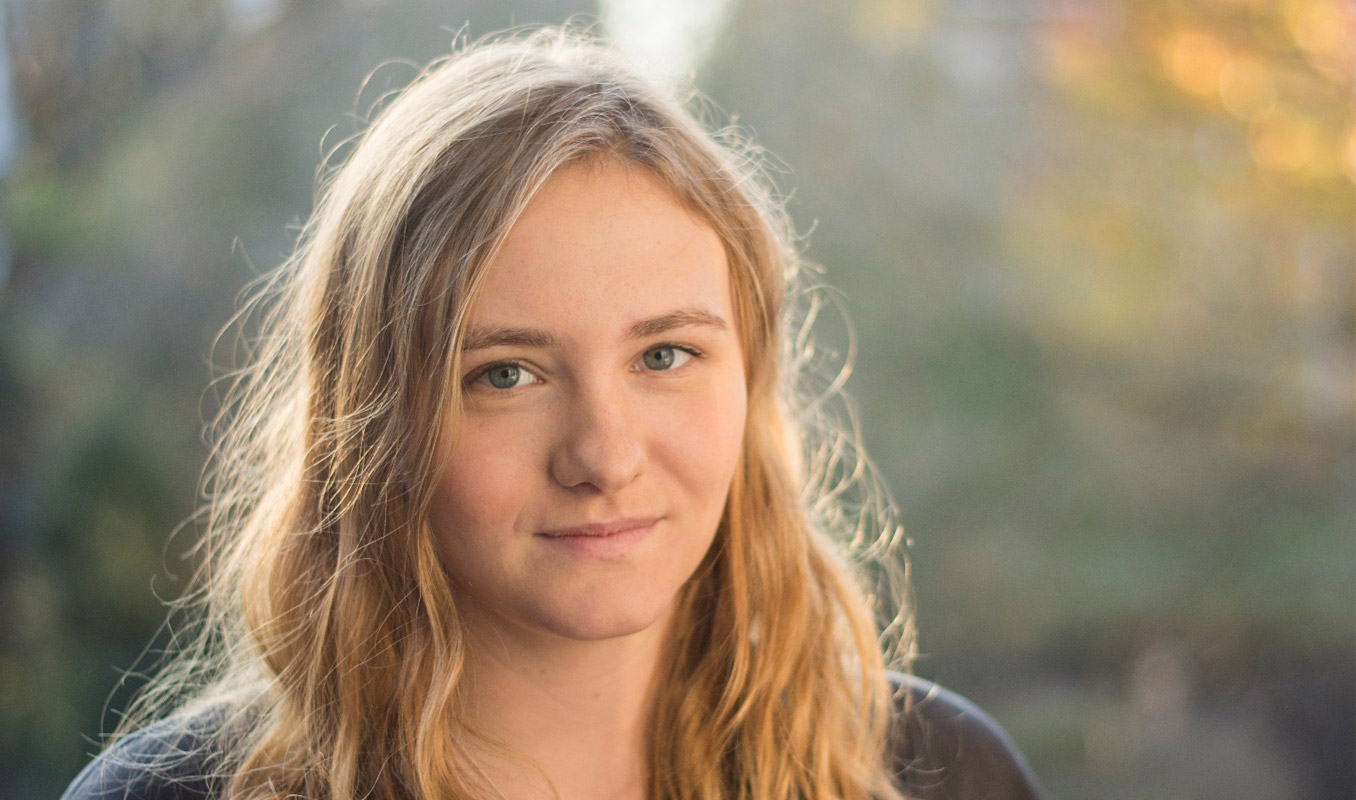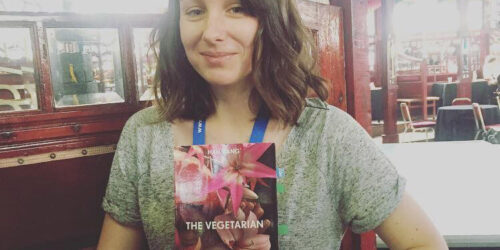
Jo Thompson started working for a literary agency in London after taking part in a placement at the National Centre for Writing during her MA in Medieval Literature at the University of East Anglia.
Tell us about what you’re up to now!
I’m an assistant at A.M. Heath, a London Literary Agency. I work with two agents (both wonderful, submit your novels to them immediately) to help in their representation of authors. That means everything from negotiating and drafting contracts, to chasing publishers for cover designs and typeset manuscripts, to nudging people for money. I also – my favourite bit – get involved with the editorial process, writing notes for authors, and – everyone else’s favourite bit to ask about – read the submissions of authors seeking representation. I’m asked a lot if I’m in charge of finding the next Harry Potter, or whether I spend the whole day reading. I think that’s what the job would be like in a dreamy Richard Curtis film, but somehow it’s not how my days ever play out! A healthy measure of spreadsheets, database upkeep and filing is probably good for the soul anyway.
How do you think your placement at the National Centre for Writing (formerly Writers’ Centre Norwich) prepared you for your current role?
Working at NCW was the first time I’d really been part of an office – most of my previous jobs had involved setting up badminton courts or corralling teenagers into writing poetry. My placement was with the Communications team, so my main responsibilities were writing and proofreading copy, updating the website and researching for outreach. Those have all been immensely transferable skills because so much of what we do is about writing the perfect pitch, or making sure our records are up to date, or tracking down information for writers and editors. I was also allowed to draft tweets for NCW, opening up a whole world of TweetDeck that I’d never known existed. I handle our social media at A.M. Heath and I love trying to give the accounts a bit of voice and warmth.
The backbone of NCW is enthusiasm for contemporary writers, both established and budding
So, the placement was my first chance to start understanding how the Arts sector works logistically, and doing that ‘juggling priorities’ thing that everyone talks about knowingly in interviews. But more significantly, because it’s NCW, it was also my first time working in a room where people crowed in delight because an author’s event had sold out, or someone from one of their writing courses had found success. The backbone of NCW is enthusiasm for contemporary writers, both those who are already established and beloved, and those who are budding in schools and on writing schemes. This is exactly the approach we take as agents, so getting to join in with the joy of NCW absolutely put me in gear for A.M. Heath. It’s just a different side of cheerleading and facilitating great writing.
You’ve seen our work from both within NCW and the perspective of an agent’s assistant (eg Escalator). How beneficial do you think mentoring and talent development schemes are for people hoping to get representation in the industry?
I always feel a sense of completely unearned pride when someone from the Escalator scheme finds success – a hangover sense of belonging to the NCW team, I think! There’s no denying that schemes can attract attention and give writers first connections with people in the industry, but that said, I read dozens (or more than dozens) of submissions every week, and ultimately I don’t care if someone has been on a course. It’s all about what shows in the writing and in the synopsis. Few writers can afford to go on courses in terms of having the time and the money (praise be to Escalator as a free AND excellent AND flexible mentoring scheme), and in my book, they’re far from the be-all and end-all.
I think the value is often in the confidence that these schemes give, and in granting an insight into that macro sense of how to put a book together – in terms of wielding a real, compelling, overarching storyline, and in terms of writing something with some understanding of genre and what people want to read.
Do you have any advice for people wanting to get into agency work and literary representation?
I’m hoping this doesn’t look like the most contrived segue given the communications placement, but if you’re looking to work in a literary agency you need to be a good all-round communicator. It’s key to feel comfortable forming opinions on the things you read and expressing them. The majority of my work is rooted in talking to authors or publishers – that includes the many people across sales, publicity, marketing, and contracts, as well as editorial. You need to structure your thoughts clearly and cleanly, and I think a personal touch goes a long way. Publishing feels a very human industry to me – show some warmth and personality when you’re interacting with people, and if you’re writing a cover letter, talk genuinely about books!
The biggest thing for writers and prospective publishing folk though is to read books that are being published now. While I was at NCW and before I got my first publishing internship, I was doing a Masters in Medieval Literature. It was – and I don’t use this phrase lightly – a total hoot to muck in with Chaucer and Julian of Norwich for a year, but Osbern Bokenham’s Legendys of Hooly Wummen is profoundly irrelevant to a career working in contemporary publishing, so it’s the last thing I’d bring up in a cover letter or interview. If you want to work in books, I’d recommend keeping two eyes on the market – what’s bestselling, what’s your favourite publisher releasing this year, who’s on the prize shortlists, who do the bloggers love. If you’re a writer, figure out who your book’s shelf-mates would be in a Waterstones. Where does it sit in terms of genre? And it’s always a good idea then to look up who those books’ publishers and agents are – they might love your work too!
If anyone is looking for more specific advice on finding entry-level work in publishing, my email is on the AM Heath website and I’m very happy to answer any questions or grab a coffee and have a chat. And by coffee, I mean a pint or a hot chocolate.







